
The National SEED Project (Seeking Equity and Diversity) is a leader in peer-led professional development that promotes greater equity, diversity and positive change from within organizations for more equitable schools campuses, workplaces, and communities. A leader in educational equity, SEED’s strength lies in three decades of experience doing this work as family and community members, as educators and organizers, and as intellectual thought leaders. www.nationalseedproject.org
Our strengths include:
-
- our diverse range of staff, partner organizations, SEED leaders, and SEED participants;
- our model of training SEED leaders to facilitate change from within through inclusive conversations; and
- our ongoing commitment to constantly improve our work through critical self-reflection and partnering with other educational equity and diversity efforts
SEED is a peer-led professional development program that creates conversational communities to drive personal, organizational, and societal change toward greater equity and diversity.
SEED partners with institutions, organizations, and communities to develop their own SEED seminars — a group of individuals who meet regularly to learn about themselves, interact with each other across identities, and develop strategies for greater equity and diversity in their local settings.
SEED staff do make presentations and offer trainings through conferences and individual consultations. Our primary goal, though, is to support the growth of local, peer-led SEED groups that continue to meet and include more and more people over time.
SEED’s unique methodology involves:
-
- Facilitating ongoing, structured, group conversations in which all voices can be heard
- Examining how our own stories connect us to our cultures and broader social systems
- Learning from our own experiences as well as from others’ lives
- Turning oppression and privilege into agency and action
The cornerstone of our organization is New Leaders Week. It orients SEED leaders to our model, deepens their understanding of educational equity and diversity, demonstrates our pedagogy, and builds a community of change agents who will support one another across the year, even as each SEED leader is working in their own specific contexts.\
We focus on developing four key competency areas:
-
- Equity in Action: Being our fullest selves and in just relationship with one another
- Socio-Emotional Wellbeing: Promoting self-awareness of and caring for our whole selves
- Educational Growth: Learning and fostering lifelong learning
- Facilitative Leadership: Holding and moving groups with purpose
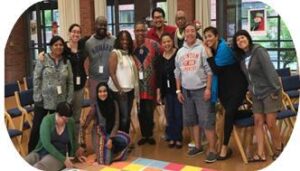
Vision
SEED (Seeking Equity and Diversity) is a 31-year leader in peer-led professional development that promotes equity and positive change from within organizations through self-reflection, interpersonal dialogue, systemic analysis, and understanding of how social inequity is reinforced. This work is done in order to enable people to build capacity from within institutions for more equitable campuses, workplaces, and communities.
History
In 1987, Peggy McIntosh, Ph.D., author of the classic paper, “White Privilege: Unpacking the Invisible Knapsack,” founded SEED to confirm her belief that teachers could be leaders of their own professional development as they worked toward making curriculum more gender fair, multicultural, and globally aware. SEED has become the nation’s largest peer-led professional development project.
SEED remains distinctive in preparing people to lead their own professional development with colleagues and in assuring that equity leadership is best developed by people with insider knowledge of their own workplaces and communities.
Activities
SEED offers:
-
- Three seven-day, residential New Leaders Week that prepares people to lead SEED seminars in their own institutions or communities
- Two three-day, residential ReSEED training that helps experienced SEED leaders to revisit, renew, and recharge their facilitation practice
- An online community for SEED leaders to support each other, network, and share resources
- Regional Networks with meetings throughout the year
- Regional events that showcase SEED concepts and methods
- Workshops at conferences around the U.S.
SEED New Leaders Week: A Video
Audience/s served
More than 2,400 educators, parents, and community leaders from 42 U.S. states and 14 other countries have been trained as SEED leaders by National SEED and the Minnesota and New Jersey branches of the Project. Those people have led at least one SEED Seminar with an average of 10-20 participants. At a minimum, 24,000 people have participated in peer-led SEED Seminars
We are looking for institutions, organizations, and communities that:
-
- Are interested in growing their own capacity for self-understanding, intergroup relations, and organizational change for equity and diversity;
- Seek to affirm professional learning, engaged communities, and broader social justice;
- Appreciate their cultural assets and diversity and are committed to members being in good relationships with one another and challenging inequity.
And individuals who:
- Are interested in becoming SEED seminar leaders and have demonstrated a commitment to equity and diversity as well as to their own learning;
- Have grounding in an understanding of concepts related to equity and diversity;
- Have the financial and social support of their institution’s administration or management;
- Can attend a residential SEED New Leaders Week and participate actively in the rigorous daily exercises of self-examination, listening, networking, and learning;
- Are committed to the time needed to run their SEED seminar. We recommend one three-hour session per month over the academic year, for a total of 27 hours. The minimum time devoted to SEED sessions should be 27 hours across at least ten weeks, with no session less than 90 minutes long.
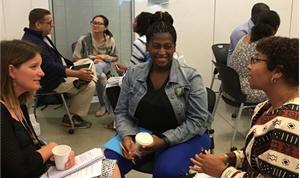
SEED Regional Networks – (Open to SEED Leaders)
-
- Chicagoland SEED
- NYC-NJ SEED
- NE SEED
- MN SEED
- California Bay Area SEED
- Washington DC/Virginia SEED
- Northwest/West Coast SEED
SEED Showcase Day in the San Francisco Bay Area – (Open to the Public)
A sampling of workshops on race, gender, ability, diversity, and inclusive families
SEED Workshops at Annual National Events – (Open to the Public)
-
- Diversity Challenge at Boston College
- NAIS (National Association of Independent Schools)
- NAIS POCC (National Association of Independent Schools People of Color Conference)
- The Creating Change Conference (The LGBTQ Task Force)
- WPC 16 (White Privilege Conference)
The National SEED Project – School Administrators Speak
Positive impact
SEED has had a positive, transformational impact on the lives of teachers, students, parents, and communities. Those connected to the SEED network testify that as a result of their SEED seminar experience, they listen to all voices, including their own, with widened attention. SEED participants are able to embrace, with more confidence and competence, the challenges and joys of the many kinds of diversity found in their own lives and in the lives of others, especially their students and colleagues. Here’s what some of them have said:
“At SEED, issues of inequity were no longer just statistics. I was sitting face to face with people who, as they shared their experiences of sexism, racism, homophobia, and classism, enabled me to expand my perspectives and understanding of multiple inequities that bombard adults and students on a daily basis.” Middle School Literacy Teacher, California
“SEED gave me a language to speak in. It gave me vocabulary that met the needs of various people whom I met. It also gave me a wealth of resources from which to draw to learn more, to develop myself more as a person who could advocate, because I had a better knowledge base. I felt that I could rely on the SEED process to help to guide me. It helped me to look at every day through a lens of equity and find a way to make a difference.” Special Education Teacher, Minnesota
“My work with SEED, both as a member and now a facilitator, has been the most important professional work I have been involved in as a teacher. It has forced me to change the way I plan my curriculum, interact with parents, and work effectively with colleagues.”
Elementary School Teacher, New Jersey
“One of the SEED members in my group has decided to take what she’s learned about White privilege and the importance of embracing and valuing diversity back to her grade level. She is writing curriculum that will be shared with every 6th grade student during their advisory time. Students will learn to become multicultural world citizens as well as understanding their own privileges thanks to this teacher’s dedication to sharing her knowledge.” ESL Coordinator, Minnesota
The Impact of The National SEED Project
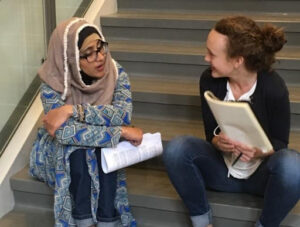
Recommendations for replication and/or adaptation
At SEED New Leaders Week, participants are prepared to lead SEED Seminars at their home sites. SEED prepares people to gather and facilitate conversational communities within their schools institutions, and communities.
The traditional SEED Seminar (3 hour monthly gathering of 15-20 people over 9-10 months) continues to be the usual next step in the process after a leader attends a New Leaders Week.
Historically some trained SEED Leaders have facilitated a variety of offshoots of SEED including “cultural competency” trainings, SEED seminars for Masters plus credits, mandatory attendance in SEED seminars for first-year teachers, and SEED seminars led off-site by master teachers, and college courses.
Looking Forward
Now in our third decade, SEED continues to build conversational communities that can bring about change. Our seminars include people who are new to the conversations and people who have been involved and even led this work for decades. We have seen SEED seminars work effectively in community and institutional spaces covering a range of cultures, socioeconomic statuses, individual identities, and professional positions. We would not be able to continue this work without the support of numerous people and foundations across the years. At present, all donations contribute to three bodies of work:
-
- Bringing together the widest range of participants and institutions possible in spite of the financial hardships that many of our institutions face due to systemic oppression.
- Ensuring that our trainings are accessible to individuals across a range of physical, cognitive, and social-emotional abilities as well as language and material needs.
- Developing our activities and our staff to continue to be leaders in designing, implementing, and disseminating methods to bring about wholeness and just relationships.
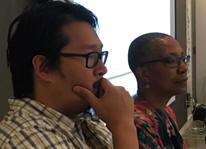
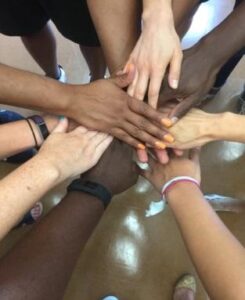
Contact Info:
www.nationalseedproject.org
Media relations
news-wcw@wellesley.edu
781-283-2552
All other inquiries:
The National SEED Project
Wellesley Centers for Women,
Wellesley College
106 Central St.
Wellesley, MA 02481-8203
info@nationalseedproject.org
781-283-2399
facebook.com/nationalseedproject
